Post-1945
How life has changed in Kirklees since 1945
Before the Industrial Revolution
Life in Kirklees has changed in many ways since 1945.
On 5th July 1948 the National Health Service was established, offering free health care to all British citizens. However, the new health system was short of staff, so the government began to recruit from overseas countries which were still part of the British Empire. Many African-Caribbean migrants moved to Kirklees to fill the shortages.
On 22 June 1948, HMT Empire Windrush arrived in Essex, carrying hundreds of Caribbean migrants to their new home; eight of these people settled in Huddersfield. They contributed to a vibrant community across the region, and the Venn Street club, opened in 1967, became a hotspot for reggae music and sound-system culture.The first of an annual Caribbean carnival was founded in 1976.
The Coronation of Elizabeth II took place in Westminster Abbey on 2 June 1953, and celebrations were held across Kirklees, with many different types of organisations involved.
Britain's population grew and become more diverse. In the late 1950s and early 1960s, migrants from Pakistan and India came to work in the textile industry in Kirklees, and substantial communities developed.
The 1950s also saw the rise of the "teenager" as young people had more money and freedom than ever before. Music and leisure time became increasingly important and Huddersfield became a centre of music. On 29th November, 1963, The Beatles performed at the ABC Cinema in Huddersfield, and in 1967, the Batley Variety Club was set up by James Corrigan and his wife Betty. In the 1960s there were over 300,000 members. By the 1970s, it was one of the most famous clubs in the country, and everyone from Tom Jones to Shirley Bassey performed there.
The twentieth-century has also seen the decline in manufacturing in the area. By the 1970s, the woollen and textile mills suffered due to the national recession, Three-Day-Week and electricity blackouts. There was more competition from overseas, and advances in technology meant fewer workers were required.
Transport and travel became easier when the M62 was opened between 1971 and 1976, with the intention of connecting Liverpool, Manchester, West Yorkshire and Hull. Many people were forced to move out of their houses to make way for the construction, as the government issued Compulsory Purchase Orders.
Kirklees Council was established in 1974, as part of the Local Government Act of 1972. The act merged 11 local government districts, including the county boroughs of Huddersfield and Dewsbury, to form the new borough of Kirklees. The name Kirklees comes from Kirklees Priory, which is said to be the place where Robin Hood died.
On July 4, 1981, Huddersfield hosted the UK's first Pride parade outside of London, which was a show of support for the Gemini Club, a popular gay club in Huddersfield. The march was held in Huddersfield after repeated raids on the club and in support of its owner, John Addy.
What to expect in the box:
The items in bold are original items, please take extra care with these.
Traditionally nappies were made from cheap, absorbent, soft, flexible and durable material - cotton towelling.
Towelling could be bought relatively cheaply by the yard from a roll. So almost all nappies were made by cutting the towelling or old towels into squares about 2 feet by 2 feet (about half a metre by half a metre) and hemming the edges.
This was often a task taken on by a grandmother who was used to using such nappies with her own babies.
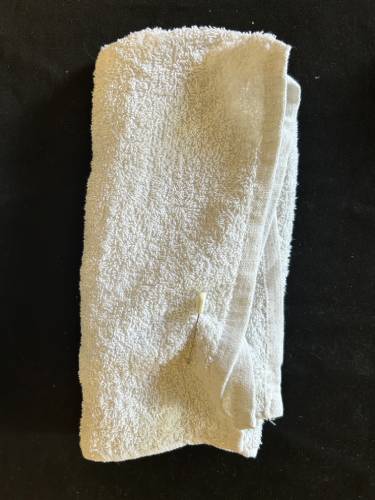
Please note, this is original and authentic
The first photograph was taken in 1826, but cameras were very expensive and large.
The first Polaroid camera, introduced in 1938, made it possible for people to capture memories quickly, as photographs were printed instantly. Overtime it also became much cheaper and people could begin to create their own family photo albums.
We do not know the family in this album, but what they chose to photograph can show us what was important to them. We can learn a lot from photographs about society at the time.
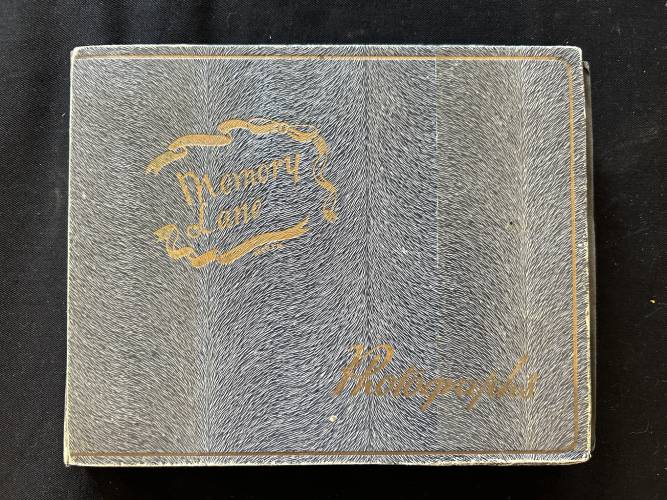
Please note, this is original and authentic
Rationing in the UK continued into the early 1950s as a response to World War II, when the government wanted to ensure that everyone had enough food.
The UK was the last country involved in the war to stop rationing, and it ended completely on July 4, 1954.
Tea was rationed in 1952, eggs and sweets in 1953, and cheese and meat in 1954.
Even the Queen's wedding dress was made from rationed textiles!
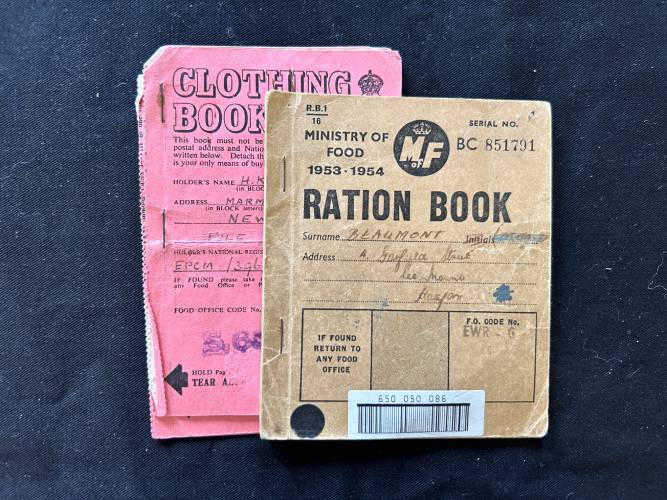
Please note, this is original and authentic
Yardley, London, was founded in 1770, but became a popular cosmetic brand in the 1950s. They introduced new foundations, such as this example here.
After the austerity and gloom of World War Two, the 1950's became a golden era for glamourous make-up. Magazines advertised the latest looks, inspired by icons such as Marilyn Monroe, Elizabeth Taylor and Audrey Hepburn.

Please note, this is original and authentic
The Education Act of 1944, also known as the Butler Act, made it compulsory for all children to attend school up to the age of 15.
Longley Hall School was originally built as a house, but in 1924 it was converted into a girl's school. The school was extended in the 1950s and became Woodley School & College in 2016.
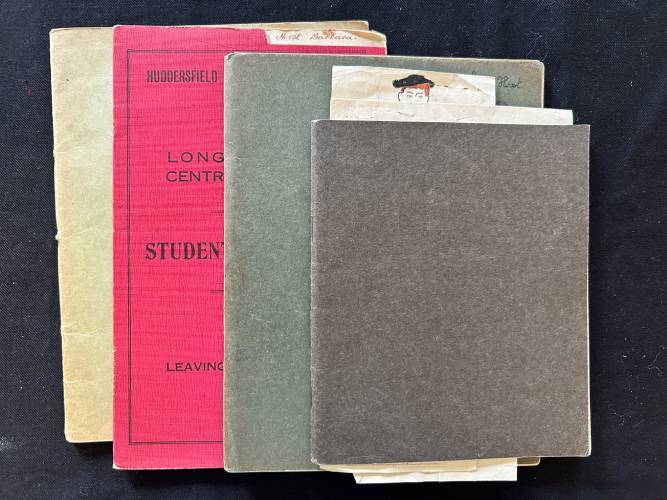
Please note, this is original and authentic
The Daily Mail Ideal Home Exhibition, also known as the Ideal Home Show, was founded in 1908 by Lord Northcliffe, the owner of the Daily Mail newspaper.
The exhibition's goal was to showcase everything needed to create the ideal home, including the latest inventions, housing designs, labour-saving appliances, and show homes. It established a culture of commercial home-making.
Such inventions were also advertised in magazines and newspapers, and families who could not afford to buy them could obtain them through 'hire purchase' agreements - paying in installments.
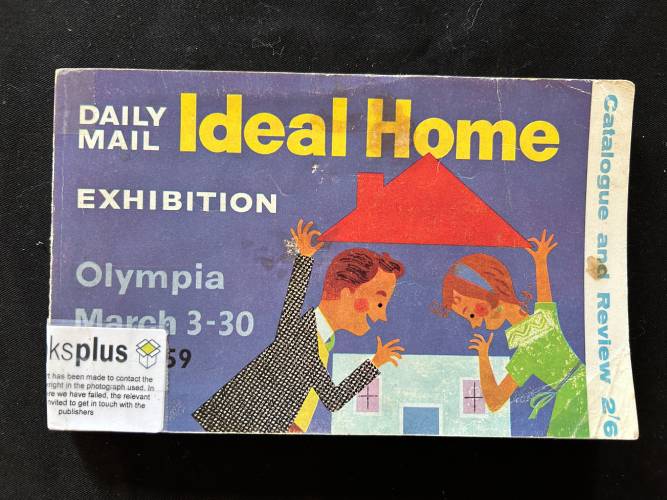
In 1965 L. S. Lowry painted this iconic picture of Huddersfield after being commissioned by Huddersfield Borough Council.
This view of Chapel Hill looking towards Lockwood is one of Lowry's classic industrial landscapes - the type that made him one of the best known and best loved artists in the country.
Lowry later wrote: "For a great many years, when I was very active, I used to visit all the industrial towns and stop a couple of nights in each. Huddersfield in particular I'd go back to. And I always gravitated to the poorer areas. It wasn't that I felt sorry for those people; They were just as happy as anyone else, and certainly as happy as I was."
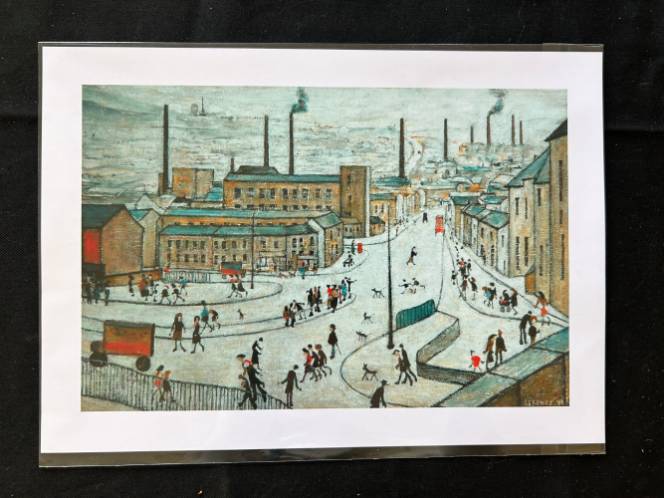
Please note, this is original and authentic
In 1906, German hairdresser Karl Ludwig Nessler, also known as Charles Nestlè, performed the first "official" perm in his London salon, which started an international craze for curly hair.
Perms became more popular in the 1970s with the invention of acid perms.
In 1973, Barbra Streisand's bubble perm in The Way We Were helped popularise the style, and other celebrities followed suit in the 1980s, when perms were often teased high with ribbons and scrunchies.
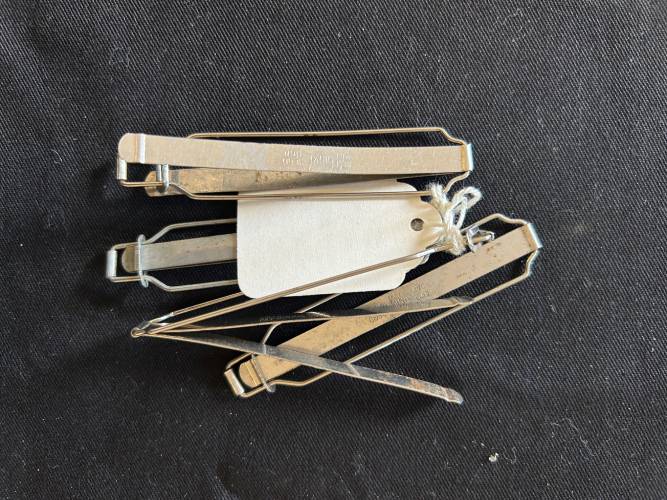
Please note, this is original and authentic
The Coronation of Elizabeth II took place in Westminster Abbey on 2 June 1953, and the whole country joined in the celebrations.
Coronation celebrations were held across Kirklees, and many different types of organisations got involved, such as local authorities, parishes, schools, private businesses, and police forces.
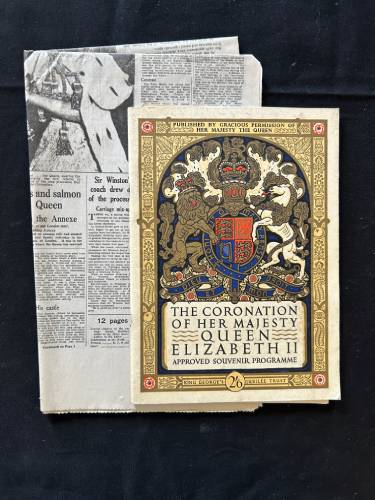
Please note, this is original and authentic
The millennium celebrations were a worldwide, coordinated series of events to celebrate and commemorate the end of 1999 and the start of the year 2000.
In Kirklees, the Denby Dale Pie festival celebrated through creating the '2000 pie', which weighed 12 tonnes!
There was also charity fundraising, galas and street parties.

The earliest recorded coal mine in Batley was at White Lee in the 1500s. Coal production reached a peak in 1867 with 384,700 and 112,500 tonnes being produced by Huddersfield (not including Flockton) and Holmfirth collieries respectively.
By the twentieth century this had become an important, but dangerous industry.
Hay Royd Colliery was the last remaining coal mine in the area, it was independently owned and operated by the Flack family, and closed in 2012.
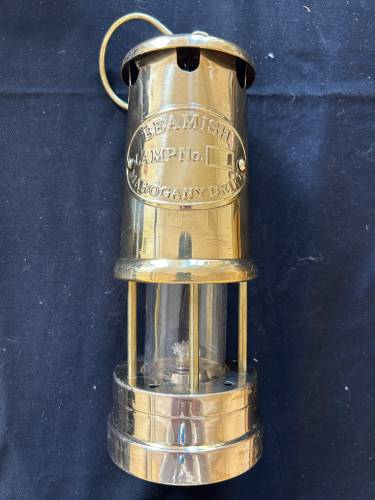
Please note, this is original and authentic
Originally called The West Riding Provident Society and Penny Savings Bank when founded in Halifax in 1859, in 1860 it became known as The Yorkshire Penny Bank.
The intention of the bank's founder was that it would help working class people to save, hence an account could be opened with just one penny.
The Home Safe was a money box with various slots near the top for different denominations of coins. Slits down the side below each slot showed how many coins were in the safe. The Home Safe had to be takento the bank to be unlocked!
These mini boxes became very common in the twentieth century.
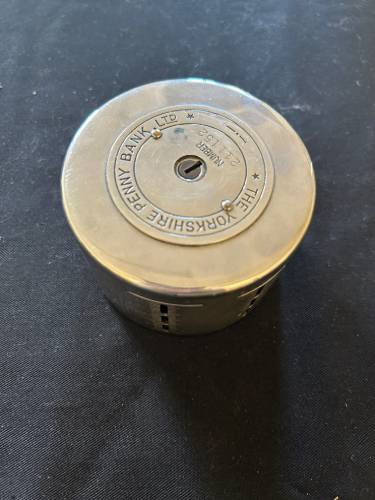
Please note, this is original and authentic
The nit nurse was a feared presence in schools up and down the country in the 1960s and 70s.
Their role was to go into schools solely to check the children to see if they had head lice.
This would be a swift and very public process which meant many feared being called in to be checked.
After the check, anyone found with lice would get a bottle of head lice treatment to take home and help clear them.
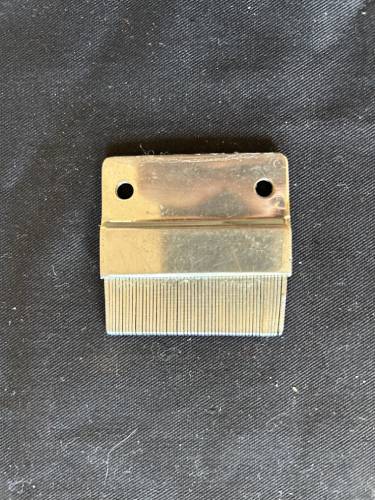
Please note, this is original and authentic
The Kodak Instamatic 25 Camera was made from 1966 to 1972 by Kodak Ltd.
Rolls of blank film cartridges would be inserted into the camera, originally only 12 photographs could be taken before the film needed to be replaced, but this was later increased to 24.
The film would then have to be developed by someone skilled in the technique.
Colour film became more widely used in the 1970s as its cost decreased, it became more sensitive to light, and processing became more standardised.

Please note, this is original and authentic
The Start-rite brand name was first used in the early 1920s, and was promoted through colourful and bold advertising campaigns.
The company commissioned health inspections to examine children's feet, and found that children's growth was being stunted and their feet damaged.
Throughout the twentieth century, Start-rite shoes were marketed to parents as a healthy, well-fitted investment in their child's future.
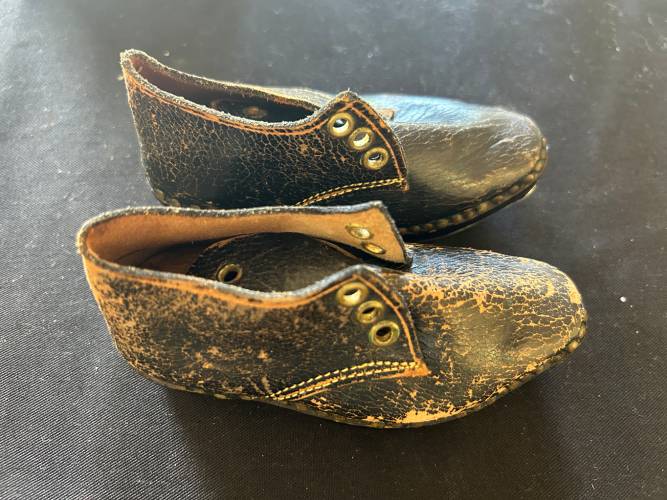
Please note, this is original and authentic
In 1667 Richard Thorpe funded a free school "for teaching fifteen poor children of the inhabitants of the parish till they can read English well."
This foundation later became Mirfield Grammar School.
In the 1960s, boys has to wear a cap, blazer and trousers. They also had to bring their own bible and a dictionary.
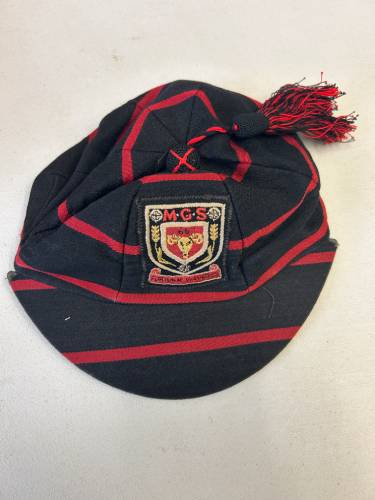
Please note, this is original and authentic
Until 1971, British money was divided into, shillings and pence.
- One pound was divided into 20 shillings.
- One shilling was divided into 12 pennies.
- One penny was divided into two halfpennies, or four farthings.
There were therefore 240 pennies in a pound.
Britain changed its currency on 15th February 1971. It changed to the decimal system, using pounds, divided into 100 pence.

Please note, this is original and authentic
The UK's first dietitian department was established in England 1924 and run by Ruth Pybus, a Sister at the Royal Infirmary in Edinburgh.
She believed that a good diet would save a number of admissions to hospital for illness, as well as being interested in improving the diet offered to patients in the hospital.
They recommended specialist diets to help with conditions - such as diabetes.
In 1934, the first School of Dietetics was opened at Edinburgh Infirmary.
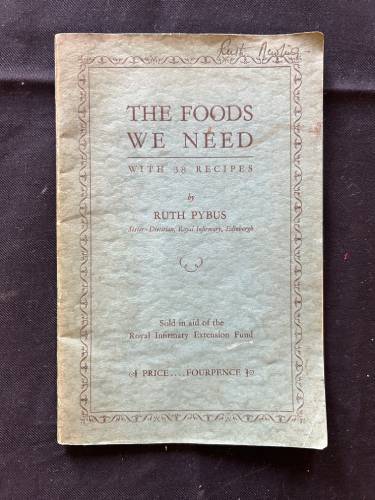
Please note, this is original and authentic
Scouting began in 1907 and was founded by Robert Baden-Powell, a lieutenant-general in the British Army.
Baden-Powell wrote down his ideas for a mass movement in 1908, and groups of boys across the country began to organise themselves into Patrols, using the book as the basis for camps and activities, and persuading adults to become their leaders.
Membership grew throughout the twentieth century.
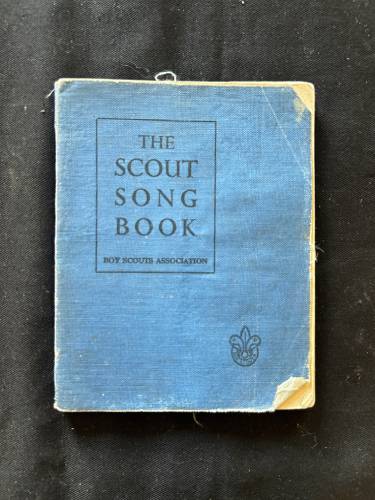
Please note, this is original and authentic
Huddersfield Town were founded on 15 August 1908. They competed in the North Eastern League and Midland League, before gaining admittance to the Football League in 1910.
They were promoted out of the Second Division in 1919-20 and went on to win the FA Cup in 1922, having been beaten finalists in 1920.
In 1952, they were relegated from the First Division after 32 years, though secured an immediate promotion the following season.
Relegated again in 1956, they won the Second Division title at the end of the 1969-70 season, though were relegated three times in four years by 1975
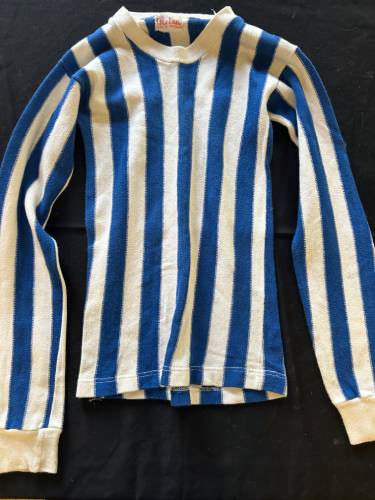
Please note, this is original and authentic
The Beatles were an English four-piece rock band, formed in Liverpool in 1960. The members of the band were John Lennon, Paul McCartney, George Harrison and Ringo Starr, with John and George playing the guitar, Paul on bass guitar and Ringo on the drums.
On 11th February 1963, The Beatles recorded ten songs during a single studio session for their debut album, Please Please Me. After the positive reaction to their first single Love Me Do, the single Please Please Me was met with a bigger reaction, and reached number one on every UK chart except Record Retailer, where it reached number two.
Due to their commercial success, it increased their media exposure - the Beatles became known for their comical attitude as this was different to other pop artists at the time. Due to their attitude and behaviour, they become even more of an interest to their fans. When they performed live and toured the UK, the band was greeted with screaming fans, which the press dubbed Beatlemania.
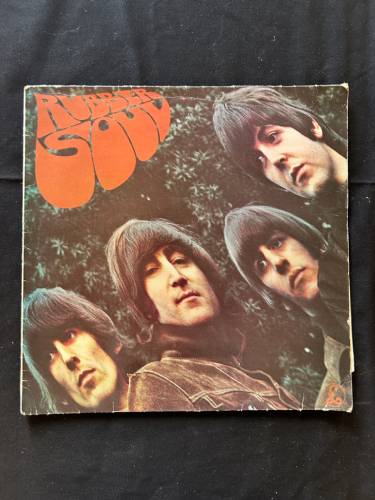
Please note, this is original and authentic
Huddersfield has a history of several successful sports teams, including football, rugby, and cricket.
Huddersfield Town was founded in 1908, and won three consecutive English League titles in 1926 and the FA Cup in 1922.
The town of Huddersfield also has a long and proud rugby tradition. Early records show that the game was first played in the town in 1869 when members of The Huddersfield Athletics Club, which had been formed five years earlier, decided to start a team. The forerunner of the modern professional Rugby League was established in Huddersfield.
The Huddersfield Cricket and Athletics Club was formed in 1875 when two clubs merged, and the football section played at Rifle Field. In 1878, the club moved to a new ground that would become their home for 114 years and earned them the nickname "Fartown".
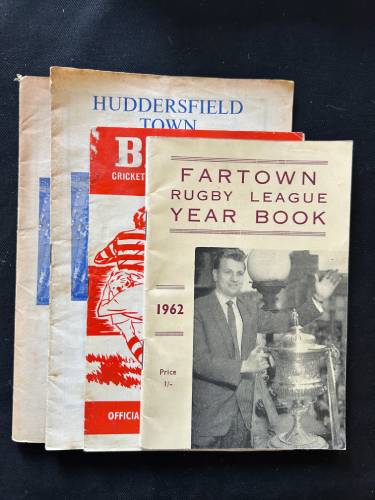
Please note, this is original and authentic
During the 2002 World Cup, England was led by Sven-Göran Eriksson. The team included David Seaman, David Beckham, Michael Owen and Gareth Southgate.
England made it through to the quarter-finals, but lost 2-1 to Brazil.
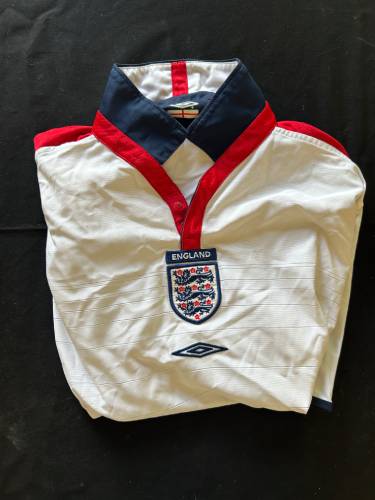
Explore the following themes using the objects
- Childhood
- School
- Home life
- Leisure time
- Sports
- Social change
- Industry
- Innovation
- Technology




